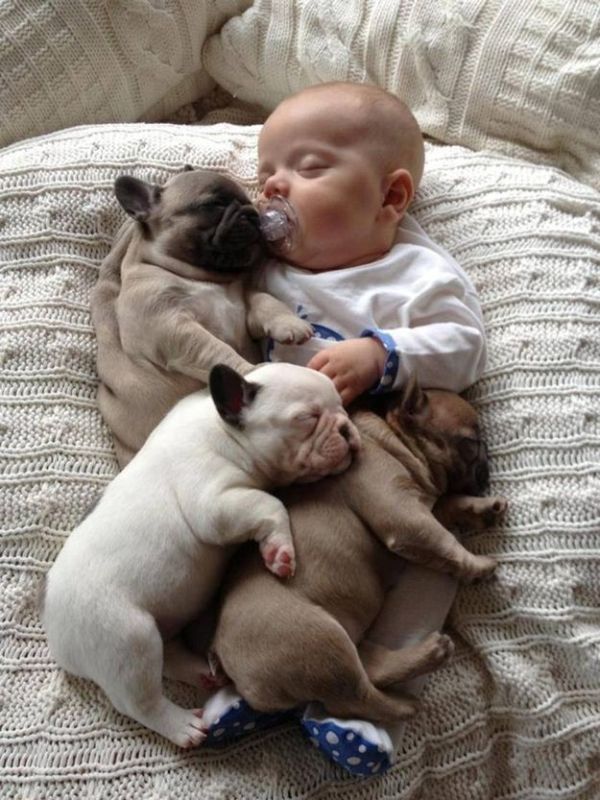|
|
Baby With Bulldog Puppies
|
Over 80% of Bulldog litters are delivered by Caesarean section because their characteristically large heads can become lodged in the mother's birth canal. The folds or "rope" on a Bulldog's face should be cleaned daily to avoid unwanted infections caused by moisture accumulation. Some Bulldogs' naturally curling tails can be so tight to the body as to require regular cleaning and ointment.
Like all dogs, Bulldogs require daily exercise. If not properly exercised it is possible for a Bulldog to become overweight, which could lead to heart and lung problems, as well as joint issues. It has been said that bulldogs are "the most relentless farters in the canine world."
Bulldog's have very small nasal cavities and thus have great difficulty keeping their bodies cool. Bulldogs are very sensitive to heat. Extra caution should be practiced in warmer climates and during summer months. Bulldogs must be given plenty of shade and water, and must be kept out of standing heat. Air conditioning and good ventilation is required to keep them healthy and safe. Bulldogs actually do most of their sweating through the pads on their feet and accordingly enjoy cool floors. Like all brachycephalic or "short-faced" breeds, Bulldogs can easily become overheated and even die from hyperthermia. They can be big snorters and heavy breathers, and they tend to be loud snorers. Bulldog owners can keep these issues under control by staying aware and protecting their Bulldog(s) from these unsafe conditions.
In January 2009, after the BBC documentary Pedigree Dogs Exposed, The Kennel Club introduced revised breed standards for the British Bulldog, along with 209 other breeds, to address health concerns. Opposed by the British Bulldog Breed Council, it was speculated by the press that the changes would lead to a smaller head, fewer skin folds, a longer muzzle, and a taller thinner posture, in order to combat perceived problems with respiration and breeding due to head size and width of shoulders.
|
|









